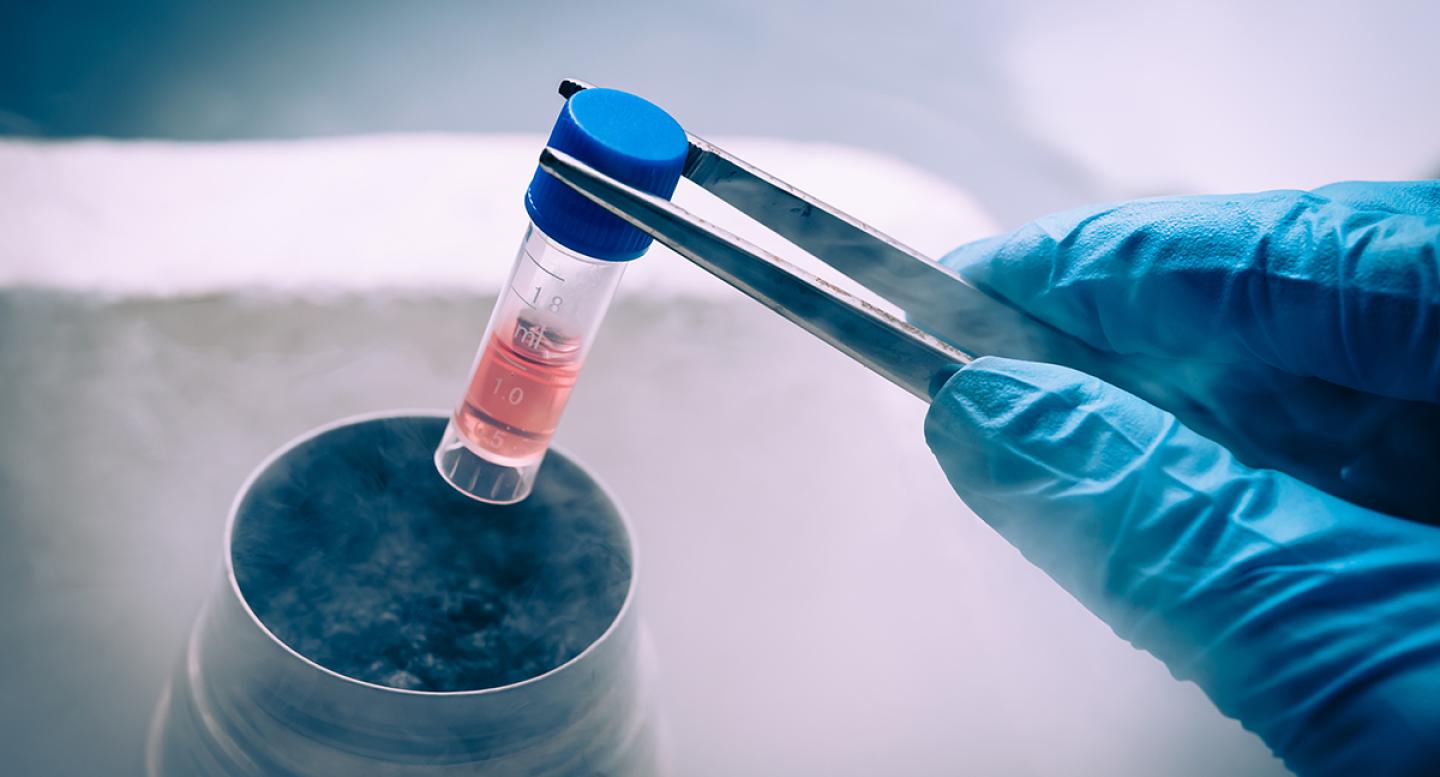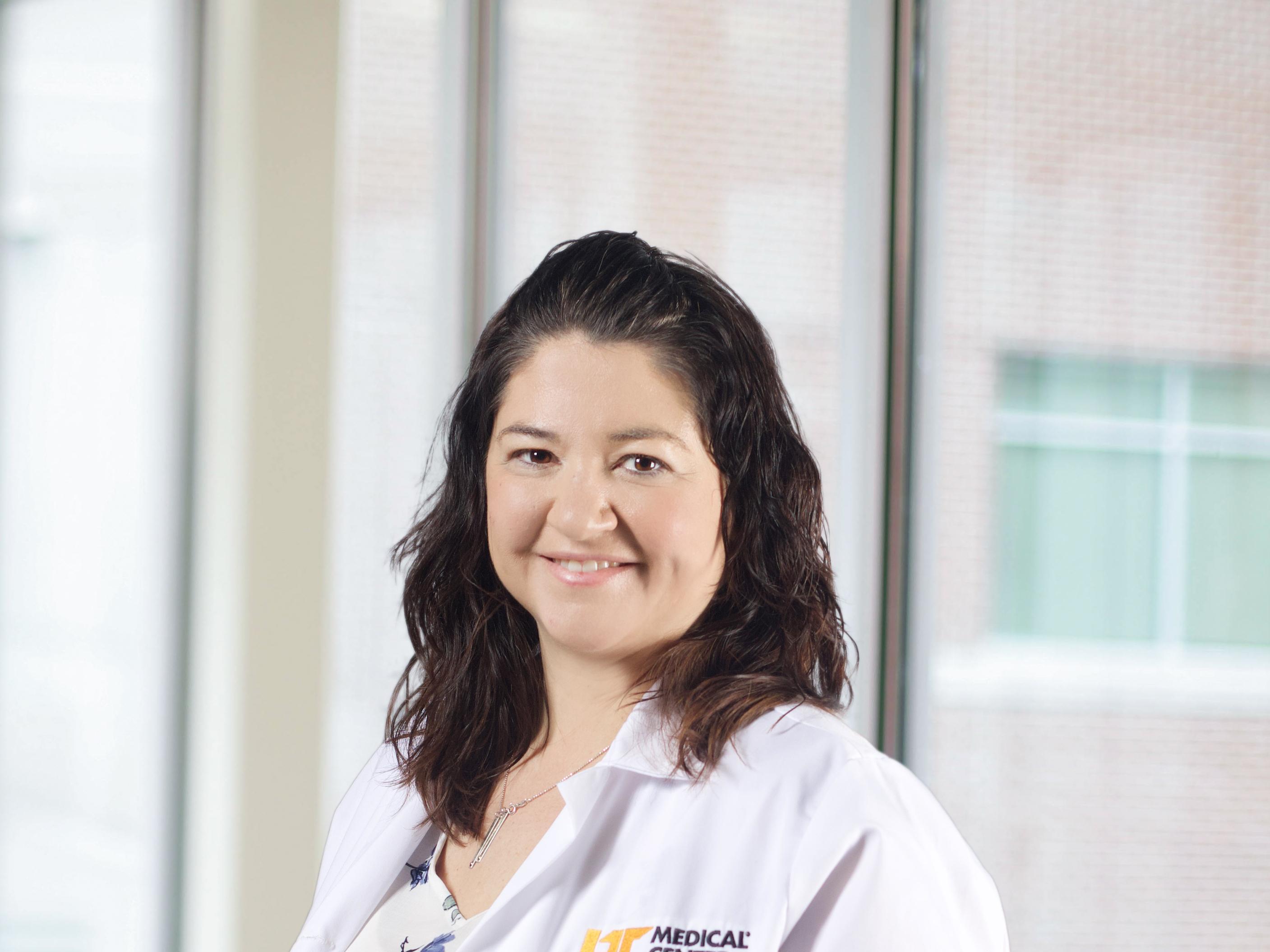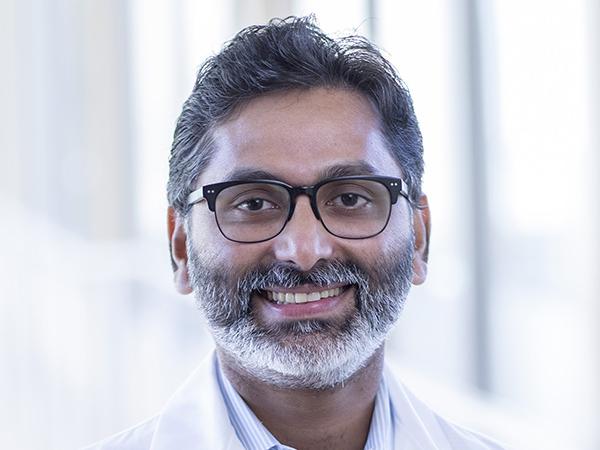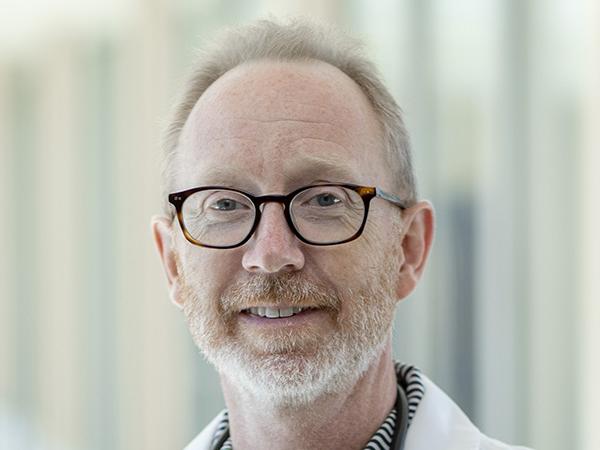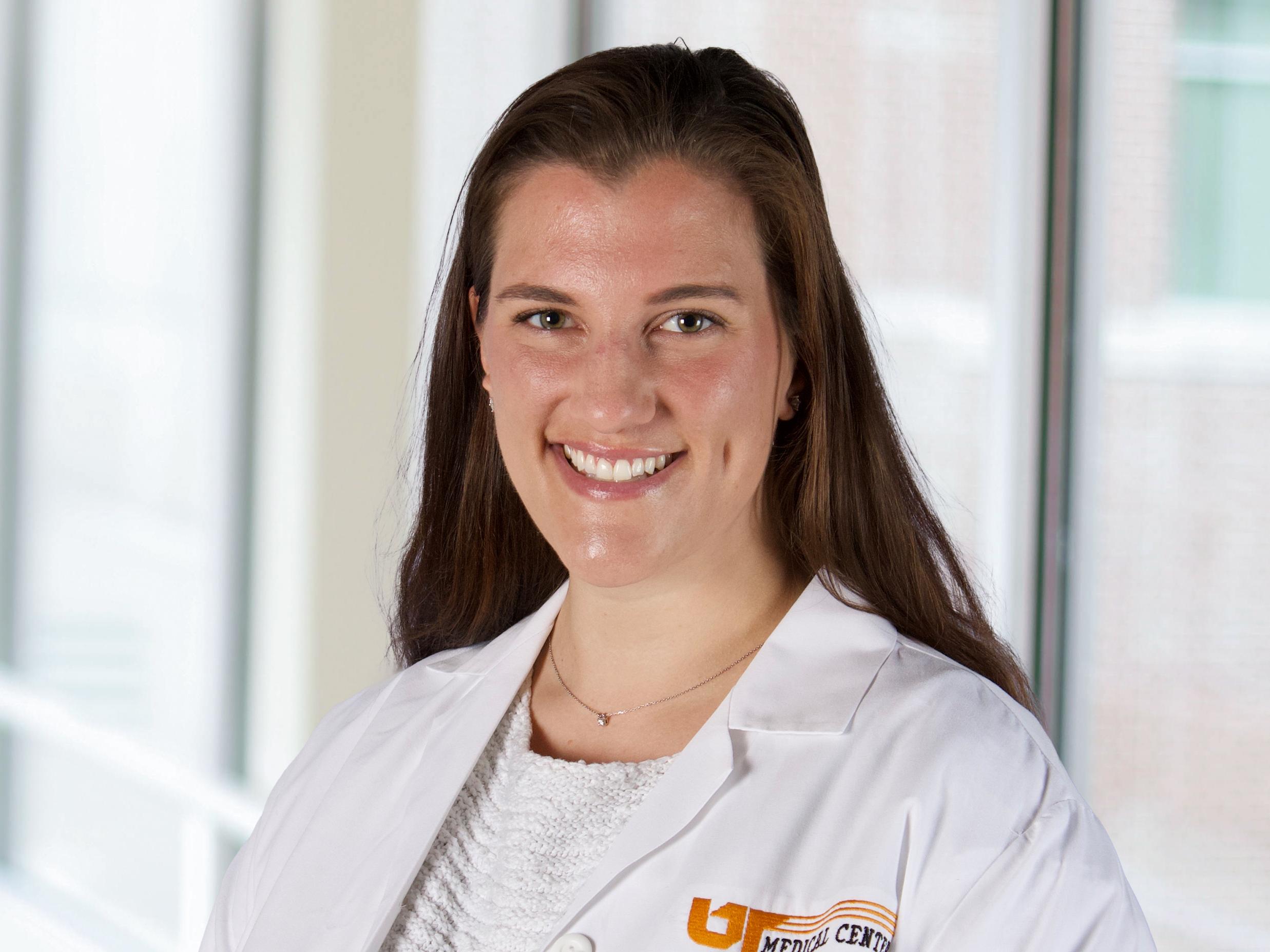Overview
The Transplant and Cellular Therapy (TCT) Program at The University of Tennessee Medical Center offers state of the art and cutting-edge therapies to treat patients with complex blood cancers and other blood disorders. Our team of transplant and cellular therapy experts provide compassionate and multidisciplinary care, creating an individualized treatment plan for each patient. Our treatment options include peripheral blood stem cell transplant, chimeric antigen receptor t-cell (CAR-T) therapies, and clinical trials involving Immune Effector Cell Therapies.
The TCT Program features a dedicated team including expert physicians, advanced practice providers, nurses, registered dieticians, social workers, financial counselors, nurse navigators and TCT Coordinators ensuring the highest level of care throughout your entire treatment journey. Our physician team led by Kelly McCaul, MD, has nearly 30 years of experience treating patients with complex blood cancers. Our team works closely with your referring provider, delivering seamless coordination of care with your entire care team.
Intensive inpatient and outpatient care pre and post TCT requires time away from home for extended periods of time; often a barrier to receiving this treatment. UT Medical Center is honored to bring these services to patients from East Tennessee and beyond, offering convenient, high quality, community-based access to complex blood cancer care. The program will also bring access to cutting edge cellular therapy based clinical trials for the patients in the region. You can stay close to home and your support network while you benefit from the many years of experience held by our TCT specialists.
Watch the video below to learn more about our Transplant and Cellular Therapy team.
Conditions Treated
Peripheral blood stem cell transplant can benefit patients with the following conditions:
- Leukemia
- Non-Hodgkin Lymphoma
- Hodgkin Lymphoma
- Multiple Myeloma
- Myelodysplastic/myeloproliferative disorders
- Certain specific solid tumors
- Other blood related disorders, such as Aplastic Anemia
Peripheral blood stem cell transplants are usually reserved for patients who have a high risk of relapsing, have already relapsed, or whose quality of life can be improved by a bone marrow transplant.
CAR-T (Chimeric Antigen Receptor T-cell) advanced cellular therapy, is a specialized form of immunotherapy using genetically engineered T-cells to target specific cancer proteins, killing said cancer cells. Currently, CAR-T benefits patients with different forms of lymphoid cancer including:
- Non-Hodgkin Lymphoma
- B Cell Lymphoma
- Follicular Lymphoma
- Mantle Cell Lymphoma
- Acute Lymphoblastic Leukemia
Your Care at the Cancer Institute
The Cancer Institute at The University of Tennessee Medical Center offers the broadest spectrum of cancer specialists and services to care for our patients with complex blood cancers. Cancer patients can receive all of their cancer care including surgical consultations, genetic counseling/testing, chemotherapy infusions, radiation oncology, and supportive/integrative health services, all in the same building.
Our dedicated inpatient TCT unit is located on 5 West within The University of Tennessee Medical Center. The unit includes:
- 9 Transplant/Cell Therapy Rooms- HEPA-ventilated inpatient rooms for transplant procedure and hospitalization
- Outpatient Center- Dedicated outpatient space for apheresis (stem cell collection) and infusion services.
- Onsite Lab- Dedicated lab for cell processing and separation.
Patients are reviewed at our weekly TCT and multidisciplinary conferences where surgeons, medical oncologists, radiation oncologists, radiologists, pathologists, genetic counselors, palliative care, nurses and clinical trial coordinators gather to determine the best individualized treatment plan for each patient. This level of coordination ensures that patients are receiving the highest level of care, offering the best outcomes and quality of life.
Our team cares for the patient as a whole and designs a medical care plan to meet their needs. Several key factors, such as the type and stage of the cancer, as well as age, health, and lifestyle are considered when determining each treatment plan.
Your Treatment Options
There are several treatments options that have different results depending on the type of cancer you have. Our team will talk with you and your loved ones about the expected results of different treatments, helping you to choose the treatment path that makes most sense for you.
Treatment options include:
Autologous Transplants
- Uses healthy blood stem cells from your own body for the transplant
Allogeneic Transplants
- Uses healthy blood stem cells from a donor for the transplant
Patients undergo evaluation and testing to assess if they are good candidates to undergo transplant. Prior to transplant, patients receive high dosages of chemotherapy and/or radiation to destroy their disease and make room for healthy new blood stem cells. The stem cells will be infused through an IV, similar to a blood transfusion. The stem cells will start to grow and produce new, healthy blood cells.
The process of growing new blood cells typically takes between two and four weeks. During this time, you may stay in the hospital to help protect you from germs while your immune system builds back up. Specially trained experts will help you manage any side effects and follow-up care.
CAR-T Cell Therapy
Chimeric Antigen Receptor T-cell (CAR T-cell) therapy is a new approach to fighting cancer using the patient’s own immune system.
Certain immune system cells, called T-cells or T-lymphocytes, are normally able to identify abnormal cells, like cancer cells, and destroy them before they multiply and cause disease. Sometimes, however, T-cells have trouble detecting cancer cells.
CAR T-cell therapy removes T-cells from the blood and inserts a new gene into them to make them targeted T-cells that destroy the cancer cells. The new cells are called CAR T-cells.
Millions of these CAR T-cells are created and then re-infused into the patient to fight cancer.
Multiple CAR T-cell therapies are currently approved by the U.S. Food and Drug Administration (FDA) for treatment of patients with certain diseases.
Clinical Trials
When you work with our TCT specialists at UT Medical Center, you can ask about eligibility to participate in a wide range of clinical trials. Patients may have the opportunity to participate in cellular therapy based clinical trials. Clinical trials are research studies made available to patients that offer the newest treatments and test new ways to prevent, detect, diagnose, and treat diseases.
For more information, visit the or call 865-305-9773.
Your Next Steps
If you or a loved one are currently being treated for a complex blood cancer and would like to be evaluated by the TCT program, we are here to help. Please call our 865-305-8780 to begin the referral process.
Our Cancer Institute team is here for you in what can be a very stressful time. Please don’t hesitate to ask questions and request help when you need it. You can reach the Cancer Institute by calling (865) 305-6055. Our new patient section will provide you additional information about the Cancer Institute and everything you need to know to prepare for your first visit.
